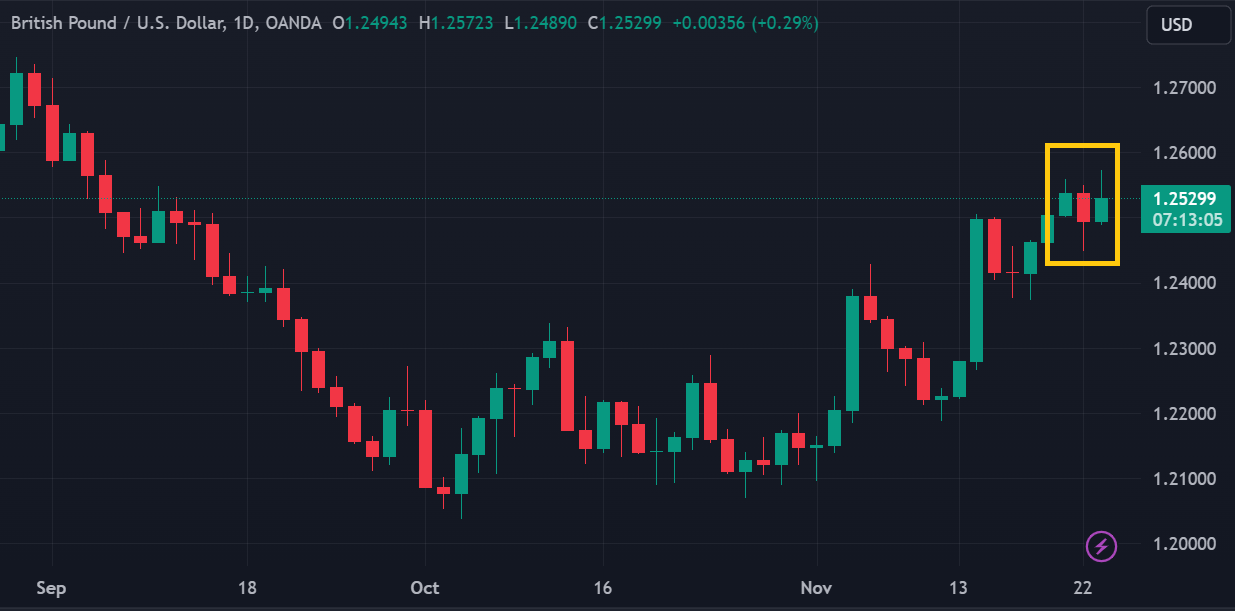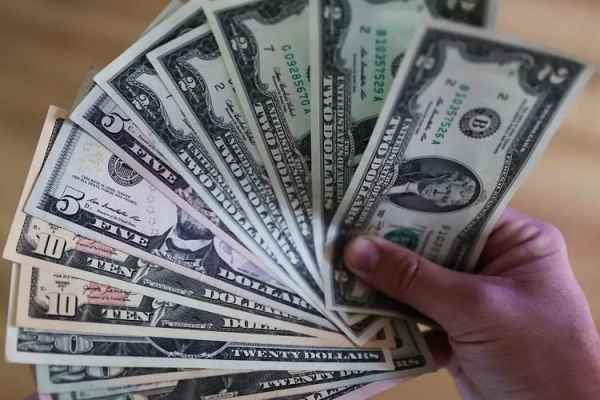GBPUSD was boosted due to PMI data and statements from UK central bank officials but burdened by projections for the UK economy in the future.
A number of major currencies are fluctuating in a limited consolidation phase this Thursday (23/November), including the pound sterling. GBP/USD slipped yesterday, but then moved into the 1.2530s range thanks to a better UK business activity data release. EUR/GBP was also stuck in the 0.8685-0.8725 range, despite the euro getting positive catalysts from some medium-impact Eurozone economic data.

S&P Global/CIPS reported better-than-expected Purchasing Managers' Index (PMI) scores for the UK manufacturing and services sectors in the November preliminary report. The UK Manufacturing PMI score increased from 44.8 to 46.7, or better than the estimate of 45.00. The UK Services PMI score was also lifted from 49.5 to 50.5.
The overall UK Composite PMI rose from 48.7 to 50.1. The recovery of the score above the 50.0 threshold that separates contraction and expansion areas is quite significant, signaling better resilience of UK business activity than previous concerns.
"The recovery in the composite PMI to above 50 for the first time since July provides reassurance that the economy is not on the brink of a recession," says Samuel Tombs, Chief UK Economist at Pantheon Macroeconomics.
"November's flash PMIs once again support our view that the UK economy is merely in a state of stagnation as opposed to outright contraction," said Simon Harvey, Head of FX Analysis at Monex Europe. "In conjunction with structural supply issues which should keep short-term UK rates higher for longer relative to the euro zone, we expect the UK's better relative growth prospects to support renewed upside in sterling-euro."
The pound sterling was also supported by statements from several Bank of England (BoE) officials this week. BoE Governor Andrew Bailey and several of his colleagues delivered hawkish testimony before members of the UK Parliament. According to them, the inflation outlook is still persistent so interest rates are likely to remain high for longer than investors currently expect.
On the other hand, Sterling's rally attempt was held back by the uncertainty of the UK economy going forward. The UK government has recently presented a more pessimistic outlook on the economy.
UK Finance Minister Jeremy Hunt yesterday presented a projection of UK GDP growth of just 0.7% by 2024. This is a drastic downward revision compared to the 1.8% growth expectation in the UK government's projections released in March.

 Dedicated FREE FOREX VPS
Dedicated FREE FOREX VPS Free FOREX Virtual Private Server
Free FOREX Virtual Private Server MT4 Demo Contest, Get $500
MT4 Demo Contest, Get $500 Sign Up for an Account, Claim 60% Deposit Bonus
Sign Up for an Account, Claim 60% Deposit Bonus Free MT4/MT5 VPS 2024
Free MT4/MT5 VPS 2024 Send E-mail and Get Free Merchandise
Send E-mail and Get Free Merchandise $1K Refer a Friend Bonus for Pepperstone Pro clients
$1K Refer a Friend Bonus for Pepperstone Pro clients Maximize Your Earnings with 100% Deposit bonus
Maximize Your Earnings with 100% Deposit bonus Trade to Win, $5,000 Monthly Demo Contest
Trade to Win, $5,000 Monthly Demo Contest Claim 30% + 15% Deposit Bonus from LiteFinance
Claim 30% + 15% Deposit Bonus from LiteFinance






